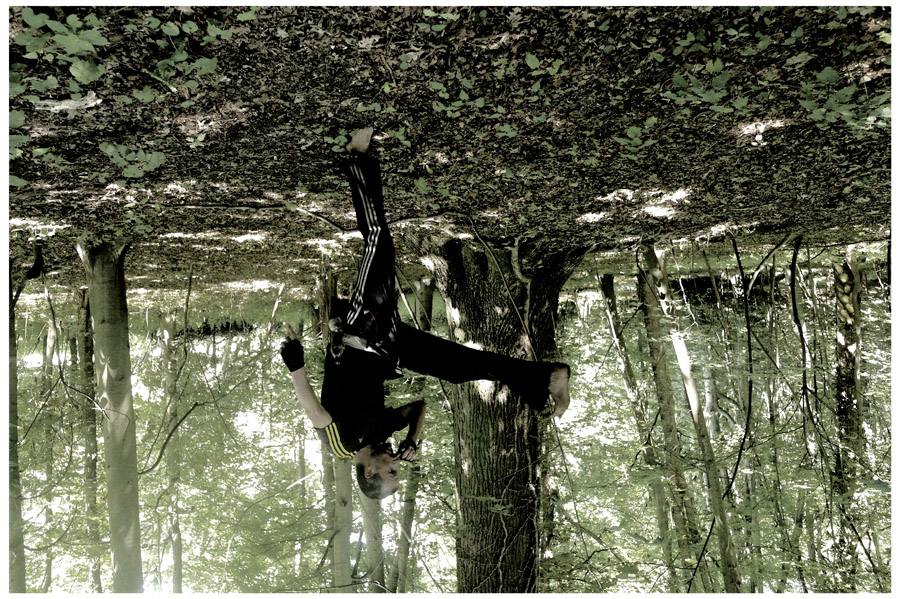SAR_sarsential™_toolbox_9/14
- Details
- Hits: 9380
Above: PGIA SAR 30K BLMTT. Sarsential 9: "Don't mention the war." [ adapt, improvise and improve efficiency ] (click on image for excellent clip on BBCWorldwide's Youtube-channel; with John Cleese, talking about 'Fawlty Towers' episode with the Germans and the hotel on fire).
"I dislike humour I can't believe in. No matter how daft something becomes, it's got to be credible at the level it's offered and real to the characters involved in it." John Cleese on Fawlty Towers in a Radio Times interview, quoted in 'Fawlty Towers, fully booked', first published in 2001 by BBC Worldwide Ltd., London.
And now for something completely different:
"An optimist might counter that nuclear weapons will never be used, even in a crisis situation, because states have such a strong incentive, namely national survival, to ensure that nuclear weapons are not used. But, this objection ignores the fact that leaders operate under competing pressures. Leaders in nuclear-armed states also have very strong incentives to convince their adversaries that nuclear weapons could very well be used. Historically, we have seen that leaders take actions in crises, such as placing nuclear weapons on high alert and delegating nuclear launch authority to low level commanders, to increase purposely the risk of accidental nuclear war in an attempt to force less resolved opponents to back down."
Matthew Kroenig in 'MOVING BEYOND PRETENSE: NUCLEAR POWER AND NONPROLIFERATION', CHAPTER 3 'THE HISTORY OF PROLIFERATION OPTIMISM: DOES IT HAVE A FUTURE?', first published June 2014 by Strategic Studies Institute and U.S. Army War College Press
"[ ... ] Modern man ascended from the apes when the brain suddenly sprouted a neocortex and frontal lobe, commonly called the forebrain. This relatively recent addition to the brain system of humans caused a dramatic shift in our development over other mammals. In essence it allowed for us to take control of time and to develop intricate, clever ways to plan and organize. We were soon formulating elaborate plans for the future allowing us to dominate other beings – including humans – and to manipulate nature. We also developed an obsession for dwelling on the past, which helped us learn from mistakes. These handy skills were absent in our mammalian-brained ancestors. [...] It appears to me that our infatuation with the frontal lobe caused us to throw the baby out with the bathwater by denying the power and value of the midbrain. Research has shown that that forebrain utilizes words and symbols to process and communicate information. However the language of the midbrain (or mammalian brain) is imagery and sensations. Thus modern humans have over-developed the verbal language based forebrain and allowed the midbrain to languish. To be fair, the imagery and sensations are still there, but they are largely drowned out by the noise of the frontal lobe, and [i]gnored. What we get is fantasy and uncontrolled emotions. The result is that we have ignored and denied our visual acuity and sensory awareness – and the complimentary skills of remote viewing, healing, manifestation, pre-cognition and intuition – relegating them to the category of “special” and to the fringes of weird science. [...] Personally I doubt that we humans were gifted the powerful frontal lobe so that we could ignore or ditch that pesky, emotional and visual mammalian brain. We were meant to operate as whole, complete beings, using each aspect of our brain-mind system to it’s fullest."
Mark Divine in 'Sealfit Blog: Let's Get Visual', published August 2nd, 2014: http://sealfit.com/sealfit-blog/sealfit-blog-lets-get-visual/?utm_source=SEALFIT&utm_medium=email&utm_campaign=blog



